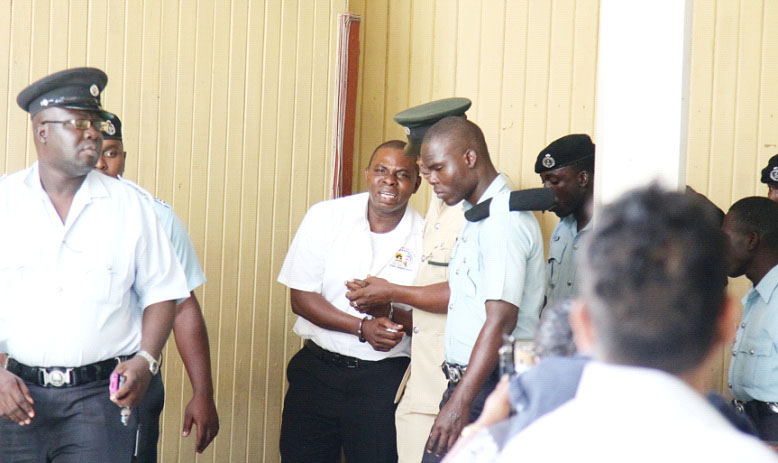Finding among other things that the summation of his case to the jury was prejudicial, the Guyana Court of Appeal yesterday morning ordered that Andre Hetsberger be retried for the October 17, 2014 rape of a 13-year-old girl.
Delivering the judgment of the court, acting Chief Justice Roxane George-Wiltshire who heard the case along with Justices of Appeal Rishi Persaud and Dawn Gregory noted that certain aspects of the evidence presented at trial were more prejudicial than probative to the accused.
In allowing Hetsberger’s appeal, the judge then said that having regard to all the circumstances of the case, and having reviewed the grounds of appeal, his conviction would be set aside and a retrial ordered.
She said that this must be done at the next convenient sitting of the criminal assizes.
To this, Prosecutor Natasha Backer gave the state’s commitment to having the matter brought up at the very next criminal session which commences in October.
Attorney Adrian Smith who appeared for Hetsberger made an application for his client to be granted bail, but the court said it preferred if that application was formally made before the High Court.
Unanimously convicted by a jury back in 2016 for raping the teenager, Hetsberger was sentenced to 25 years in jail by trial judge, Navindra Singh.
Among the grounds on which the accused appealed, he argued that the verdict of the jury was unreasonable and could not be supported having regard to the evidence.
Attorney Dexter Todd by whom Hetsberger was also represented, had argued that the trial judge allowed the prosecution to admit evidence which was “highly prejudicial” to his client’s defence, the cumulative effect of which he said amounted to rendering an unsafe verdict.
He had argued that the jury had been commanded by the trial judge to consider some two nights before the sexual assault which the girl had spent at Hetsberger’s home, as it was too late for her to travel to her home, as having amounted to establishing a “pattern.”
He said that there was no supporting evidence substantiating this purported fact, while adding that there had been a report which the girl reportedly made to her grandmother where she alleged that Hetsberger “tried” to rape her.
Todd had argued, however, that there was no clarification as to what this statement meant—whether he had already committed the act, or was attempting to so do or which act was being referenced.
Such testimonies he said, should not have been made before the jury, arguing that while it bolstered the complainant’s case, it operated to the detriment of his client’s.
The appellate court agreed with the position taken by counsel.
On this point, the chief justice highlighted in the court’s judgment that that purported evidence was of no merit, more so since the grandmother was not called as a witness to testify in the case.
This, the court ruled, should not have been admitted at trial nor testimony about the alleged previous sexual activity by which the prosecution sought to establish a purported “pattern.’
Also argued in the appeal, was Hetsberger’s contention that the medical report admitted in evidence at the trial revealed no signs of abrasions, vaginal penetration or forced entry to the young girl’s vagina.
As the state had contended at trial, however, Prosecutor Backer had reiterated that consideration needed to be given to the fact that the virtual complainant was examined 23 days after the assault.
Against this background, she advanced that it was possible by that time that there were no injuries which may have been seen.
And while Todd argued that this reasoning would have caused the jury to invite speculation into its deliberations, Backer pointed out that notwithstanding the findings of the medical report, the complainant did herself testify to having been penetrated by the convict.
In its ruling, the appellate judges noted that Todd’s advancements on this ground of appeal had no merit as there was no need to establish corroboration with findings of the medical certificate.
To Todd’s insistent position of the young girl’s testimony of having been penetrated conflicting with the medical report, the chief justice had previously reminded him that Section 69 of the Sexual Offences Act specifically says that there is no need for corroboration of the complainant’s evidence in such instances.
That section, 69 (1) states, “No corroboration of the evidence of the complainant or the sworn or unsworn evidence of a child shall be required for a conviction of an offence under this Act, and the judge shall not direct the jury that it is unsafe to find the accused guilty in the absence of corroboration.”
Backer had sought to reason that the law recognises and caters for situations where the penetration would be so slight that no physical signs could be detected thereafter, but made it clear that the act of rape would have nonetheless been committed.




